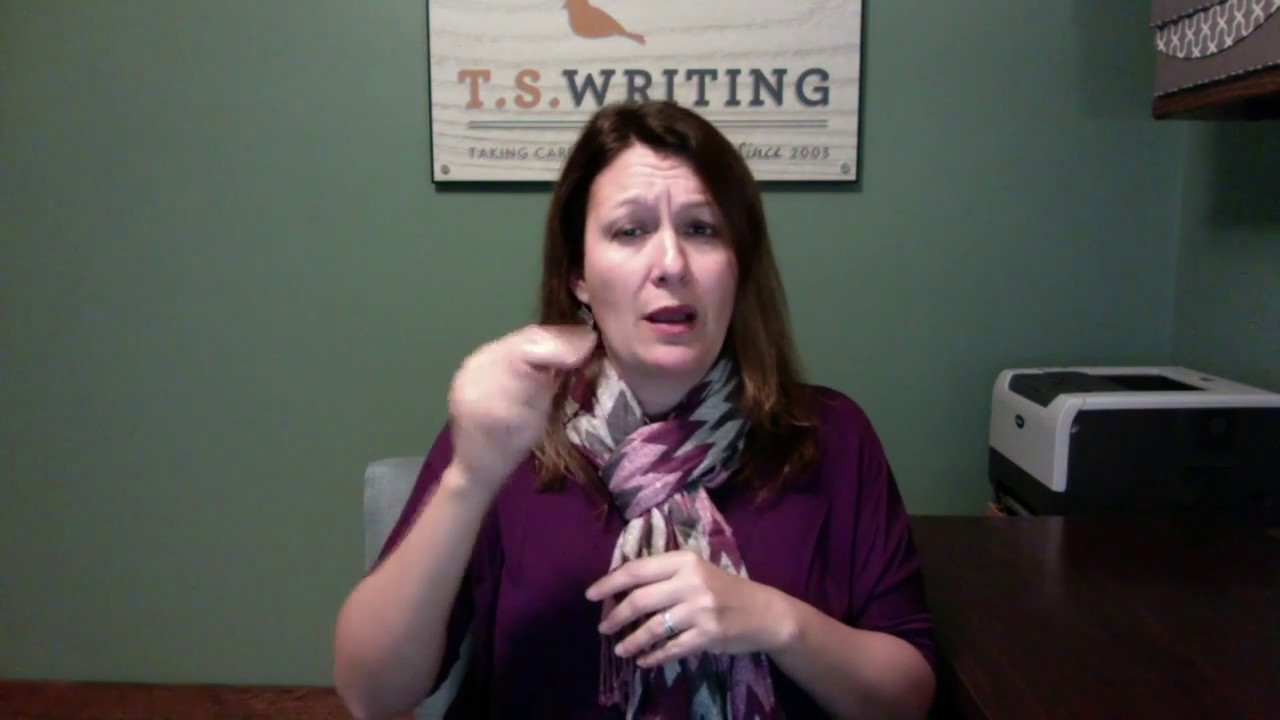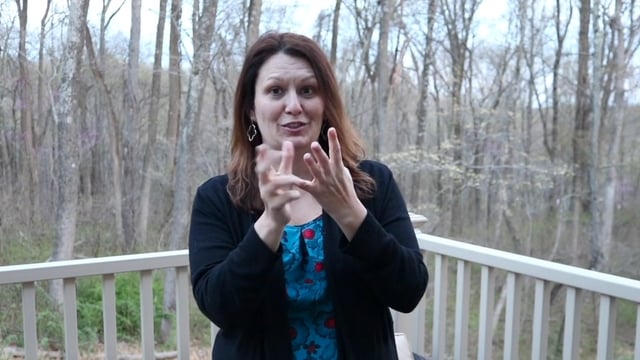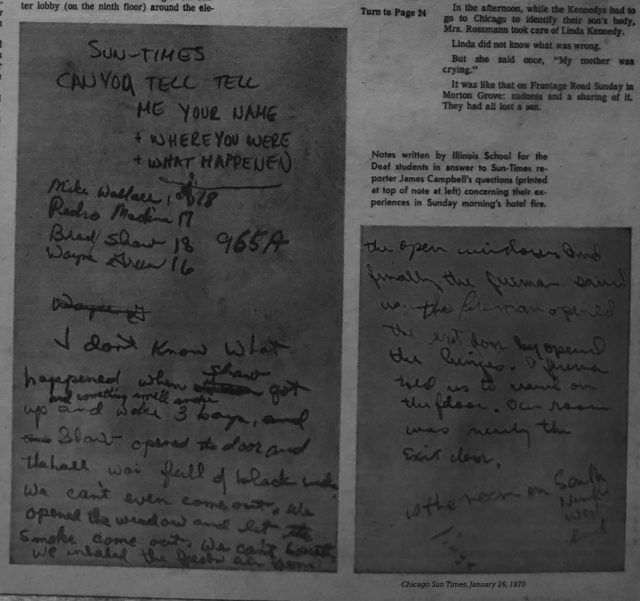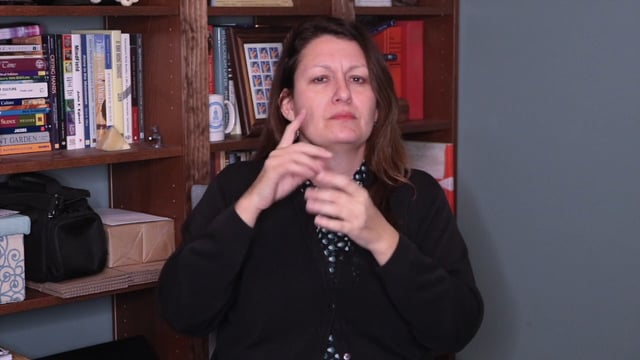This originally appeared in The Tactile Mind Weekly in Trudy’s ON HAND column.
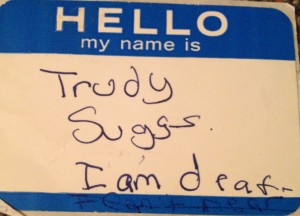
When I was at my grandmother’s a few weeks ago, she made me take some of my old school papers and toys home with me. I went through the papers, laughing at my horrible handwriting, marveling at how poor my artistic skills were, and studying my English development.
Buried in the pile was a “HELLO my name is” badge from when I was maybe in the second or fourth grade. Scribbled on it was, “Trudy Suggs. I am deaf.” Underneath that, I had written, then crossed out, “I can’t hear.”
I was astonished at how I identified myself at such a young age. As I drove back home, I thought about that badge and how we discover our identities.
I know exactly when I found out I was Deaf. I was 14.
I had always identified myself as deaf growing up, and at school, “hearing impaired.” But I also have scores of journal pages where I pour my anguish out: “Why can’t I be hearing? Why don’t people accept that I’m deaf? I wish I could be hearing so I could have a boyfriend! Everyone hates me because I can’t hear! I wish I could be popular. I hate my deafness so much.”
It’s still very painful for me to read these entries, primarily because I know the environment I was in and the people I was around shaped my perception of myself. The “hearing impaired program” teachers constantly criticized me, even though I wasn’t in any of their classes. I was mainstreamed – sometimes with other deaf students but usually by myself – and I always hated sitting in front of the classroom waiting for the interpreter to arrive. Sure, I had hearing friends, but it wasn’t the same, of course.
The other deaf kids and I had awkward friendships; I was often an outcast, different from them. I realize today it’s probably because I wasn’t in classes with them (the deaf classrooms were in an out-of-the-way annex area, out of reach of my classrooms). I simply wasn’t physically around these students enough to develop solid friendships. It also probably was because I was “more deaf” than they were, which is almost ironic. Only when I was among my parents, who always made sure I knew being deaf was a gift, or deaf adults, did I feel at home, using my natural language and not worrying about what hearing people would think.
This inner struggle of wanting to be hearing disappeared the very first day I arrived at Gallaudet’s Young Scholars Program in July 1989, held at the same time as Deaf Way. It was at YSP that I bonded with kids that were like me. It was there and at Deaf Way that I discovered that there were thousands like me. It was that summer that I found out something I had always known but wasn’t allowed to be at school: culturally Deaf.
I came back refreshed, and more importantly, happy. My journal entries after that summer show nothing but pure acceptance of my identity. Reading them, I can see a marked change in my self-esteem in these entries; my grades improved; and I finally found friends who I felt comfortable with. Instead of, “I’m deaf and can’t hear,” I was able to become me.
Today, I would write on the badge: HELLO my name is Trudy Suggs!
Copyrighted material. This article can not be copied, reproduced, or redistributed without the written consent of the author.

